
Key Information:
- Rutgers University and Michigan State University and two top schools for a bachelor’s in corrections.
- A bachelor’s degree in corrections can lead to higher-paying jobs and faster career advancement compared to just starting with a GED or high school diploma.
- These programs provide a thorough education in corrections, including coursework in criminal justice, criminology, law, and practical experiences like internships.
- Graduates can pursue various careers in law enforcement, probation, federal agencies, and more.
Some working corrections professionals, or prospective students, might wonder why they should get a degree in corrections. This is a valid question to ask, especially in light of the fact that correctional facilities train their staff to do their duties after hiring. Most facilities only require a GED or high school diploma from applicants seeking to fulfill these roles. So why get a bachelor’s degree in corrections when the facility offers training?
The fact is, getting a bachelor’s degree in corrections puts you on track to getting higher-paying jobs and makes it easier to advance your career. It’s true that people without corrections degrees do manage to work their way up the career ladder as they gain experience, but they typically spend more time climbing the ladder because they don’t have a degree in corrections. Getting a bachelor’s degree in corrections offers more advantages to your future than starting out as a new recruit in a correctional facility.
How We Ranked the Best Corrections Degrees in America
Bachelor’s Degree Center is dedicated to pointing students to degrees that will really enhance their careers, so editors focus on accredited, reputable programs in criminal justice and corrections. From our initial pool, schools are ranked according to factors like cost, salary potential, and student reviews, gathering data from sources including IPEDS and Niche.
1. Rutgers University

Rutgers University offers a BA in Criminal Justice that is considered one of the best corrections degrees available. Students enrolled in this degree in corrections pursue careers in the legal industry or for a state or federal government agency as enforcement officers or policymakers. Coursework for Rutger’s University’s criminal justice degree program includes ideas in justice, criminal law, forensics, crimes against humanity, and prison/prisoners, to name a few. Degree candidates complete an internship during either their junior or their senior year of the degree program.
Rutgers University was founded in 1766. Rutgers University operates several campuses throughout New Jersey, as the state’s flagship institution of higher learning. The school is a space-grant, sea-grant, and land-grant university that serves nearly 69,000 students.
What We Like: Rutgers University is recognized as one of the American colonial colleges established before the American Revolution.
Degree: Criminal Justice, BA
Rutgers University BA in Criminal Justice
2. Michigan State University

Michigan State University’s School of Criminal Justice offers a degree in corrections with its Bachelor of Arts (BA) program in Criminal Justice that prepares students for careers securing risk society. Coursework for MSU’s 120 credit units of classes like criminology, policing, juvenile justice, women and criminal justice, law and criminal policy, plus an independent culminating senior experience. Graduates of Michigan State University’s corrections degrees work professionally apprehending offenders and supporting the adjudication efforts against the offenders.
Michigan State University was founded in 1855. MSU’s campus in East Lansing covers more than 5,200 suburban acres and serves nearly 50,000 students. MSU is a sea-grant and land-grant institution of higher education that is also the flagship campus for Michigan’s state.
What We Like: The Morrill Land Grant Act used Michigan State University to act as a model for all other land-grant universities established at that time.
Degree: Criminal Justice, BA
Michigan State University Criminal Justice, BA
3. Boston University

The Metropolitan College at Boston University offers a degree in corrections with its Bachelor of Science (BS) degree program in Criminal Justice that is considered among the best in the country. Coursework for Boston University’s degree in corrections includes police and society, sociological methods, rehabilitation & reintegration, urban affairs criminal law and courts, and criminal procedures, among others. Degree candidates graduate and find rewarding work in the area of corrections, court procedures, criminal activities, and social policy in relation to crime, to name a few.
Boston University was founded in 1839. The school operates as a non-sectarian institution of higher education but has had an affiliation with the United Methodist Church. Boston University serves nearly 35,000 students studying for academic degrees offered by the universities eighteen colleges/schools.
What We Like: BU runs several facilities in the Boston area in South End, Fenway Park, Kenmore, and Allston, MA.
Degree: Criminal Justice, BS
Boston University Criminal Justice, BS — Corrections
4. University of Nebraska

The University of Nebraska’s School of Criminology and Criminal Justice offers a Bachelor of Science (BS) degree program in Criminology and Criminal Justice. It offers students a study abroad option in London, England. UN’s corrections degrees are recognized by US News among the top criminal justice degree programs in the nation. Students enrolled in the University of Nebraska’s degree in corrections find rewarding careers as a police officer, a probation officer, a federal agent, a service officer, or an agent for the Drug Enforcement Agency.
The University of Nebraska – Lincoln (UNL) was founded in 1869 under the Morrill Land Grant Act only a couple of years after Nebraska was adopted as a state. UN Lincoln’s campus in Urban Lincoln serves more than 25,500 students.
What We Like: UNL holds the distinction of developing cutting-edge agricultural techniques known as the “Nebraska Method.”
Degree: Criminology and Criminal Justice, BS
University of Nebraska Criminology and Criminal Justice, BS
5. University Of Alabama at Birmingham
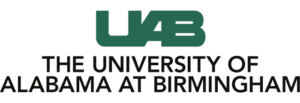
The University Of Alabama at Birmingham offers a BS in Criminal Justice that prepares degree candidates for careers in forensics, law, criminal justice, or police. UAB’s corrections degrees are the only academic criminal justice programs in Alabama that require students to complete an internship to graduate. The required internship for the degree in corrections from UAB that lasts from 12 – 15 weeks, depending on the semester chosen.
UAB was founded in 1969. UAB serves as Alabama’s largest state employer. This institution of higher education’s campus serves more than 22,000 that hail from more than 100 countries. UAB provides students with more than 125 degree programs offered through the school’s twelve academic departments.
What We Like: The University Of Alabama Birmingham’s economic impact on the state is estimated to exceed $7 billion for the calendar year ending 2017.
Degree: Criminal Justice, BS
University Of Alabama at Birmingham BS in Criminal Justice
6. University Of Massachusetts Lowell
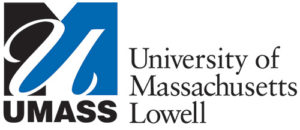
The University Of Massachusetts Lowell offers a BS in Criminal Justice: Corrections, which prepares students for careers in the prison system, offender treatment, or community correctional facilities. UMass Lowell’s degree in corrections program requires students to complete 120 credit hours, of which 36 – 60 credit units dedicated to criminal justice classes. Coursework for these corrections degrees includes Intro to Policing, Criminal Law, Corrections, Criminal Justice System, plus a culmination capstone seminar.
UMass Lowell was established in 1894. UMass Lowell is home to more than 18,000 students vying for academic degrees offered by the schools’ six colleges/schools. UMass Lowell lays claim to be the first university to offer undergraduate accredited programs in nuclear or plastics engineering and meteorology.
What We Like: UMass Lowell operates as the largest institution of higher education in the Merrimack Massachusetts Valley with the main campus in Lowell and a satellite facility in Haverhill.
Degree: Criminal Justice: Corrections, BS
University Of Massachusetts Lowell BS in Criminal Justice: Corrections
7. University Of North Texas

The University Of North Texas College of Health and Public Service offers a Bachelor of Science degree program in Criminal Justice (BSCJ) that is available online or at UNT’s main campus in Denton. The degree in corrections program requires students to complete 120 credit units to graduate. Degree candidates pursue careers in investigations, victim services, counseling, corrections, parole, law, corporate security, and case management, to name a few. Coursework for the University Of North Texas’ corrections degrees includes criminal law, diversity issues, criminal justice ethical issues, victimology, a seminar on violence, and juvenile justice, among others.
The University Of North Texas (UNT) was established in 1890 as a teacher training school. The school operates as the State’s flagship state university, with nearly 40,000 students vying for academic degrees offered by the university’s thirteen colleges/schools in Denton, Texas’ most populated region.
What We Like: The University of Texas System operates additional facilities in Frisco, Fort Worth, and Dallas.
Degree: Criminal Justice (BSCJ)
University Of North Texas Criminal Justice
8. Indiana Wesleyan University

Through the Behavioral Sciences division, Indiana Wesleyan University offers a BS in Criminal Justice (BSCJ) that prepares students for careers in social work, vocational teaching, bailiffs, investigators, or judicial law clerks, to name a few. Coursework for IWU’s corrections degrees includes criminology, crisis intervention, forensics, corrections, and a criminal justice internship/practicum. IWU’s recommends students double minor with a criminal justice major. Suggested double minors for this degree in corrections include psychology, addiction, or social work, among others.
Indiana Wesleyan University (IWU) was founded in 1920 as Marion College. Indiana Wesleyan University maintains an affiliation with the Wesleyan Evangelical Church. IWU operates more than a dozen academic facilities throughout the states of Ohio, Kentucky, and Indiana. Indiana Wesleyan University’s student enrollment on all campuses exceeds 13,000 students.
What We Like: Students enrolled in IWU represent more than 75 Christian denominations from all over the world.
Degree: Criminal Justice, BS
Indiana Wesleyan University BS in Criminal Justice
9. Portland State University

Portland State University’s College of Urban and Public Affairs: Criminology & Criminal Justice offers either a Bachelor of Science (BS) or a Bachelor of Arts (BA) degree program in Criminology and Criminal Justice. Students enrolled in Portland State University’s degree in corrections requires the completion of 68 credit units in criminal justice plus the university’s undergraduate criteria. PSU’s corrections degrees include coursework in punishment and corrections, court systems, crime analysis, criminology, and crime theories, to name a few.
Portland State University (PSU) was established in 1946 as the Vanport Extension Center to serve returning veterans after World War II. PSU’s campus is home to more than 26,000 students vying for academic degrees offered by the school’s six academic colleges/schools.
What We Like: Portland State University received the Carter partnership award in 2008 for maintaining a watershed table near the school with 27,000 volunteers.
Degree: Criminology and Criminal Justice, BS/BA
10. Old Dominion University

Old Dominion University’s corrections degrees include either Bachelor of Arts (BA) or a Bachelor of Science (BS), a degree program in Criminal Justice that is available online or on-campus in Norfolk. Graduates enrolled in ODU’s degree in corrections pursue careers in the fields of police work, court systems, parole boards, or investigators, among others. Coursework for Old Dominion University’s corrections degrees includes law and criminal justice, criminal theory, sociology of women, substantive criminal law, cyber law, plus a capstone project in criminology or criminal justice.
Old Dominion University (ODU) was founded in 1930 as a division in the Norfolk area of the College of William and Mary. ODU’s student enrollment exceeds 24,000, with more than 600 students hailing from countries across the world.
What We Like: Old Dominion University is recognized as one of the largest institutions of higher education in the state of Virginia.
Degree: Criminal Justice, BA/BS
Old Dominion University Criminal Justice, BA/BS
11. East Carolina University

East Carolina University’s Department of Criminal Justice offers a Bachelor of Science degree program in Criminal Justice (BSCJ) that requires students to complete 120 credit hours to graduate. ECU’s degree in corrections includes coursework in crime, criminal justice research methods, juvenile justice, criminal justice issues, plus an internship to graduate. Students graduating from ECU’s corrections degrees pursue careers in the courts, victim services, law enforcement, crime labs, or asset protection, to name a few. Degree candidates train in classrooms, labs, and in the field.
East Carolina University (ECU) was established in 1907 and is currently the fourth largest institution of higher education in North Carolina. ECU is a member school of the University of North Carolina system. The school serves more than 30,000 students across six academic sites throughout the state, studying for degrees provided by the school’s nine colleges/schools.
What We Like: ECU’s campus has grown from 40 acres to more than 1,500 acres today.
Degree: Criminal Justice, BS
East Carolina University Criminal Justice, BS
12. Park University

The corrections degree program at Park University offers a Bachelor of Arts (BA) or a Bachelor of Science (BS) degree program in Criminal Justice that offers students three academic tracks. The concentrations available for Park University’s corrections degrees include security, law enforcement, or corrections. The degree in corrections offered by Park University includes classes in criminal law, agency administration, criminology, criminal procedures, plus a senior seminar and a criminal justice-related internship. The total credit hours required to complete Park University’s corrections degree program is 122 credit hours.
Park University was established as Park College in 1875. The school is named to honor George Park, who made a generous donation of the original property upon which the school sits. Park University’s student enrollment exceeds 11,000 students.
What We Like: Park University’s main campus sits above the Missouri River, but the school operates more than 40 campuses across 22 states.
Degree: Criminal Justice Administration, BA
Park University Criminal Justice Administration, BA
13. St Mary’s University

St. Mary’s University offers a BA in Criminal Justice that requires the completion of 120 credit hours to graduate. Coursework for these correction degrees offered by St Mary’s University includes legal topics in criminology, criminal law, criminal justice ethics, and criminal justice administration, to name a few. The degree in corrections from St. Mary’s prepares students for a career as a jury consultant, expert witness, police office, corrections officer, or criminal profiler, to name a few.
St. Mary’s University (St. Mary’s) was established in 1852 in St. Louis, Missouri. St Mary’s University maintains an affiliation with the Marianist – Roman Catholic Church but accepts students from any faith. St Mary’s University’s campus in San Antonio is home to nearly 3,900 students vying for degrees in the arts, social sciences, engineering, business, and law.
What We Like: US News recognizes St Mary’s University among the top 21 schools in the western US region.
Degree: Criminal Justice, BA
St. Mary’s University BA in Criminal Justice
14. Cedarville University
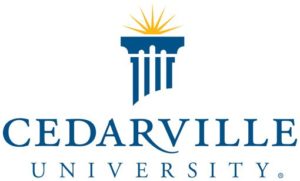
Cedarville University’s Department of History and Government offers a Bachelor of Arts (BA) in Criminal Justice with biblical integrations in every class. Students graduating from Cedarville University’s corrections degrees pursue careers as probation officers, legal secretary, paralegal, investigator, correctional officer, or crime scene investigator, among others. Students enrolled in Cedarville University’s degree in corrections have the option to spend a semester in Washington, DC, for a life-changing learning semester.
Cedarville University was founded in 1887. While Cedarville University began with an affiliation with the Reformed Presbyterian Church, it currently operates as a Baptist institution of higher education. The school’s campus covers more than 400 rural acres in Ohio and serves more than 4,100 students.
What We Like: All students enrolled at Cedarville University are required to earn a minor in bible studies and attend chapel services each week.
Degree: Criminal Justice, BA
Cedarville University Criminal Justice, BA
15. SUNY College at Brockport
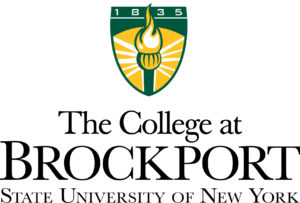
The SUNY College at Brockport Department of Criminal Justice offers a Bachelor of Science degree program in Criminal Justice recognized among the top programs on the east coast. SUNY Brockport’s degree in corrections encourages students to double major with sociology and criminal justice. Students enrolled in these corrections degrees from SUNY Brockport includes coursework in race and crime, crime mapping, white collar crime, criminal law, family violence, and crime patterns, to name a few.
SUNY College at Brockport was established in 1835. SUNY Brockport’s suburban campus in upstate New York is home to more than 8,000 students. The College at Brockport operates as a constituent school of the State University of New York.
What We Like: SUNY Brockport holds the distinction of hosting the Special Olympics for the State of New York in the mid-1970s.
Degree: Criminal Justice, BS
SUNY College at Brockport Criminal Justice, BS
16. West Chester University of Pennsylvania

West Chester University of Pennsylvania’s College of Business and Public Management Justice offers a Bachelor of Science (BS) degree program in Criminal Justice that offers students an accelerated dual-degree option that includes a Master of Science that can be earned in only five years. West Chester University’s degree in corrections prepares degree candidates for careers in law officers, public defenders, correctional facilities, child welfare agencies, and law enforcement agencies, to name a few. Degree candidates enrolled in West Chester University’s corrections degrees have the option of studying abroad through the university.
West Chester University of Pennsylvania (WCUPA) was established in 1871. WCUPA’s student enrollment exceeds 17,000 students. Money Magazine recognized WCUPA as a best value institution of higher education.
What We Like: West Chester University of Pennsylvania is the largest member school of the Pennsylvania State System of Higher Learning.
Degree: Criminal Justice, BS
West Chester University of Pennsylvania’s Criminal Justice, BS
17. Western Carolina University

Western Carolina University offers a BS in Criminal Justice that is available entirely online or at the Cullowhee campus. WCU’s degree in corrections requires students to complete 120 credit hours to graduate, of which 48 hours dedicated to the criminal justice curriculum. Students enrolled in WCU’s corrections degrees provide students with a voluntary internship opportunity to gain real-world experience. WCU’s online corrections degree program is ranked as a best buy program by ‘Get Educated.’
Western Carolina University was founded in 1889 as Cullowhee Academy. The university’s campus in Cullowhee covers more than 550 rural acres and serves more than 12,000 students vying for degrees offered by WCU’s six colleges/schools.
What We Like: Western Carolina University is a member school (the 5th oldest) of the University of North Carolina.
Degree: Criminal Justice, BS
Western Carolina University BS in Criminal Justice
18. California Baptist University

California Baptist University’s Department of History and Government offers a Bachelor of Science (BS) degree program in Criminal Justice that includes a biblical world view. CBU’s corrections degrees include coursework regarding criminal justice, constitutional law, police systems, criminal research methods, hate crime, narcotics, and comparative criminal justice. This degree in corrections program offers students hands-on training in the areas of CSI and firearms, plus the opportunity to attend relevant conferences throughout the United States during the semester.
California Baptist University was founded in 1950 as the California Baptist College. This private institution of higher education is connected to the California Southern Baptist Convention. The school serves more than 11,000 students on more than 150 acres in California.
What We Like: Students at CBU have the option of serving overseas for several weeks each summer through the International Service Projects.
Degree: Criminal Justice, BS
California Baptist University Criminal Justice, BS
19. Regent University

Regent University’s BS in Criminal Justice can be completed 100% online or on the Virginia Beach campus. Students enrolled in the degree in corrections offered by Regent University must complete 120 credit units to graduate. Coursework for these corrections degrees includes criminology, corrections, criminal evidence, research methods, homeland security, public policy, and domestic/international terrorism. Additionally, students are required to select from an independent study or an internship in criminal justice.
Regent University was founded in 1977. The university maintains an affiliation with the interdenominational evangelical church. More than 8,600 students attend this school initially chartered by Pat Robertson. The school Regent University offers associate, bachelor’s, master’s, and doctoral programs through its eight schools/colleges.
What We Like: US News recognizes Regent University among top Christian universities.
Degree: Criminal Justice, BS
Regent University BS in Criminal Justice
20. Marist College

Marist College’s Criminal Justice Department offers a Bachelor of Science (BS) degree program in Criminal Justice that requires degree candidates to complete 120 credit units to graduate. Marist College’s corrections degrees include coursework in criminal justice ethics, criminal courts, criminal law procedure, policing in America, plus an internship in a criminal justice-related field. The degree in corrections program offers internships in the secret service, NYC police department, the county’s district attorney’s office, or a nearby correctional facility in Greenhaven.
Marist College was founded in 1929 by the religious organization of the Marist Brothers. The school remains connected to the Roman Catholic Church. More than 6,500 students attend Marist College, located on a bluff above the majestic Hudson River.
What We Like: Marist College provides students with international study opportunities on its campus in Italy and many other locations.
Degree: Criminal Justice, BS
Marist College Criminal Justice BS
21. Lindenwood University

Lindenwood University offers a BA in Criminology and Criminal Justice. Students enrolled in the degree in corrections program from Lindenwood University complete internships in a law office, a cybercrime unit, or in a victim assistance agency. Students graduate from Lindenwood University’s corrections degrees prepared for careers in social service, juvenile facilities, probation services, courts, police departments, or federal agencies, to name a few. Lindenwood University partners with the St Louis County Police Academy.
Lindenwood University was founded in 1827 as the Lindenwood School for Girls. Lindenwood University’s student enrollment nears 7,500 students on its campus about 20 miles north of downtown St. Louis, MO.
What We Like: Lindenwood University holds the distinction of being the second oldest institution of higher learning situated west of the Mississippi River.
Degree: Criminology and Criminal Justice, BA
Lindenwood University BA in Criminology and Criminal Justice
22. University of the Cumberlands

The University Of The Cumberlands offers a bachelor’s degree in Criminal Justice that prepares graduates for rewarding careers in corrections, the FBI, the DEA, the ATF, a Deputy Sheriff, or a Police Officer, to name a few options. The University Of The Cumberlands’ degree in corrections includes coursework in policing, corrections, homeland security, criminal justice ethics, child abuse investigation and death investigation, plus an internship if approved by the program’s administrators. The corrections degrees offered by the University Of The Cumberlands requires the completion of criminal justice coursework equal to 36 semester hours.
Baptist ministers founded the University Of The Cumberlands in 1888. The University Of The Cumberlands has no religious affiliation at present. More than 13,000 students attend classes at the University Of The Cumberlands studying for degrees offered by the university’s four colleges/schools.
What We Like: Several former governors from the State of Kentucky are University Of The Cumberlands alumni.
Degree: Bachelor’s in Criminal Justice
University Of The Cumberlands Criminal Justice
23. University of New Haven
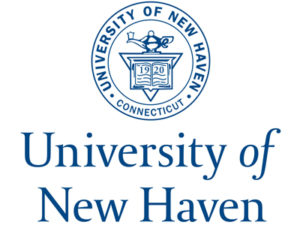
The University of New Haven’s Lee College of Criminal Justice and Forensic Sciences offers a Bachelor of Science (BS) degree program in Criminal Justice that offers students a choice of academic tracks in crime analysis, corrections, crime victim services, investigations, juvenile justice or police science. This degree in corrections from the University of New Haven also supports students with a career development center that has been recognized nationally.
The University of New Haven was established as the New Haven YMCA Junior College in 1920. The University of New Haven’s suburban campuses in West Haven and Orange, CT, covers more than 100 acres and serves more than 6,800 students.
What We Like: The University of New Haven’s marine biology programs, criminal justice, and engineering programs have received national recognition.
Degree: Criminal Justice, BS
University of New Haven Criminal Justice BS
24. New England College

New England College offers a BA in Criminal Justice that is available on-campus in Henniker, NH. Students enrolled in New England College’s degree in corrections program complete internships in a state prison, law office, victim assistance agency, police departments, and local prosecutor’s offices. Additionally, students attending New England College’s corrections degrees will also complete a senior seminar capstone course in criminal justice to graduate. Graduates pursue careers as a parole office, law enforcement officer, corrections officer, or detention officer, to name a few.
New England College was founded in 1946. The college’s rural campus in Henniker is located about 1.5 hours from downtown Boston and home to more than 2,500 students. The school operates nine colleges/schools which offer about 40 degree programs as associates, bachelor’s, masters, and doctoral levels.
What We Like: New England College has been recognized for its bachelor’s degree programs offered online.
Degree: Criminal Justice BA
New England College BA in Criminal Justice
25. Keiser University — Clearwater

Keiser University – Clearwater offers a BA in Criminal Justice (BACJ) that requires enrolled students to complete 120 credit units to graduate. This degree in corrections offered by Keiser University’s Clearwater campus includes coursework in criminal justice ethics, terrorism, the supreme court, human exploitation, private security, constitutional criminal procedures, plus an integrated capstone project in a criminal justice-related field. Students entering Keiser University’s corrections degrees programs are not required to complete any pre-requisite courses.
Keiser University was founded in 1977 by Dr. A and Mrs. E Keiser as a school to serve the adult population in Florida. Keiser operates several campuses in Clearwater, West Palm Beach and Fort Lauderdale, and internationally. More than 19,200 students attend Keiser University across its campuses.
What We Like: Kaiser University’s sister school is Everglades University. Everglades College, Inc runs both schools.
Degree: Criminal Justice, BA
Keiser University – Clearwater BA in Criminal Justice
What Can I Do with a Degree in Corrections?
Correctional officer jobs are just the tip of the iceberg when it comes to the types of jobs you can get with a corrections degree. Career opportunities are found in the private and public sector that don’t involve working in correctional facilities, but still offer the opportunity to work in the field of law enforcement. Of course, correctional officer jobs are always an option and you can always find jobs in the department of corrections as you begin your career. Department of corrections jobs are found in the federal sector and at the state level. Corrections degree jobs are also found in privately run prisons. Correctional facilities are part of the fabric of the American justice system which means that you’ll never have to go far or ask the question of “are there corrections jobs near me?”
If you find that you want to do more than consider department of corrections jobs, there are plenty of corrections degree jobs that have you working in a law enforcement role, but not in correctional facilities. You can find correction major jobs in the following areas:
- Police department
- Fish and game warden
- Border patrol agent
- Fraud investigator
- Private detective
- Probation officer
You might find that looking at jobs in the department of corrections is the best place for you to start your career and gain experience, then look into other career fields. Private security agencies put a value on hiring people who have had correctional officer experience because they understand how to subdue a suspect while taking care to respect their rights and follow the law. Having department of corrections jobs on your resume can help you find jobs that want the experience you can bring to a role that involves security, but not necessarily requires you to have hands-on contact with suspects. Some security roles need your expertise to make plans of action and enforce them in order to keep a property safe from encroachment while others need real-world security experience to prevent hackers from attacking networks. The experience you bring to a non-correctional security role can open up job opportunities you might not have had otherwise.
What is a Correctional Officer?
Just what are correctional officers? Are correctional officers law enforcement or are correctional officers cops? And are correctional officers considered law enforcement? The fact is, correctional officers are an internal security force for a correctional facility such as a jail or prison. When taking a look at just what are correctional officers, you’ll find that they are a type of law enforcement that maintains order in a correctional facility setting. So, are correctional officers law enforcement?
Not exactly. While someone with a corrections degree is able to become a police officer, they are not specifically a sworn officer of a municipality. Inside a facility, are correctional officers considered law enforcement? Strictly speaking, no, correctional officers are not cops. However, correctional officers do uphold the law and they do uphold the codes of conduct that inmates are expected to follow. In this sense, correctional officers are an official security force that are sworn to perform their duties to the letter of the law and mete out punishment when prisoners break the rules or the law.
Correctional officers have limitations the same as any law enforcement body. When taking a look at what limitations are placed on correctional officers, it’s quickly apparent that the correctional officer has to follow the laws of the governing body for that facility. The laws may be local, county, state, or federal and sometimes laws overlap due to jurisdictional issues. After asking “what limitations are placed on correctional officers”, you might wonder what are the benefits of being a correctional officer.
The benefits of being a correctional officer are many and include taking pride in administering justice, helping inmates better themselves, learning about the different backgrounds inmates come from, understanding how inmates operate in an institutional situation, and deeper insight into the workings of the human mind. It’s a career path that can bring satisfaction to someone who’s looking for a career field that’s always delivering a challenge and is never the same no matter what day it is.
Related Rankings:
15 Best Online Bachelor’s in Corrections
